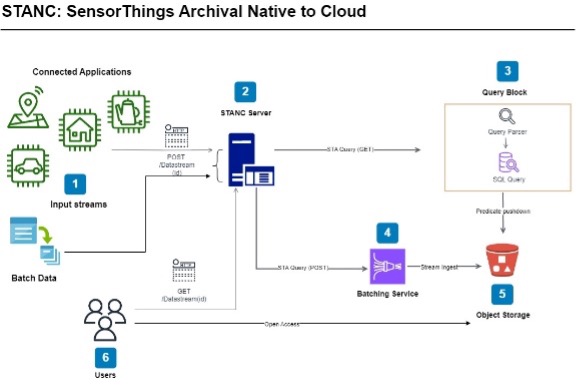GICEDCam: a Geospatial Internet of Things Framework for Complex Event Detection in Camera Streams
A geospatial IoT framework for complex event detection in camera streams.

Objective
The main objective of this research is to satisfy the requirements by designing and developing a geospatial framework to increase the accuracy of Complex Event Detection (CED) in videos in an Internet of Smart Cameras network.
Description
CED leverages continuous processing of high-volume data streams, offering faster performance compared to traditional relational processing methods. However, applying CED to unstructured data formats, such as videos, introduces unique challenges due to the need to identify specific spatiotemporal patterns within event streams. This makes detecting complex events in videos significantly more challenging than in traditional CED systems. Despite advancements in previous studies to address these challenges, issues such as false positives and false negatives persist, which impact critical applications like safety monitoring, automatic security surveillance, and vehicle traffic control. These ongoing challenges have motivated us to propose a solution aimed at improving the accuracy of existing CED engines while maintaining their high performance.
Project Details
Sponsor(s): Alberta Innoates
Collaborator(s): Sepehr Honarparvar
Highlights:
- Design and Development of an Internet of Smart Cameras Solution for Complex Event Detection in COVID-19 Risk Behaviour Recognition
- A Systematic Review of Event-Matching Methods for Complex Event Detection in Video Streams
- An Initial Study of Real-time Traffic Estimation with Low-Cost IoT Cameras and OGC IoT Standards
- Design and Development of an Integrated Internet of Audio and Video Sensors for COVID-19 Coughing and Sneezing Recognition